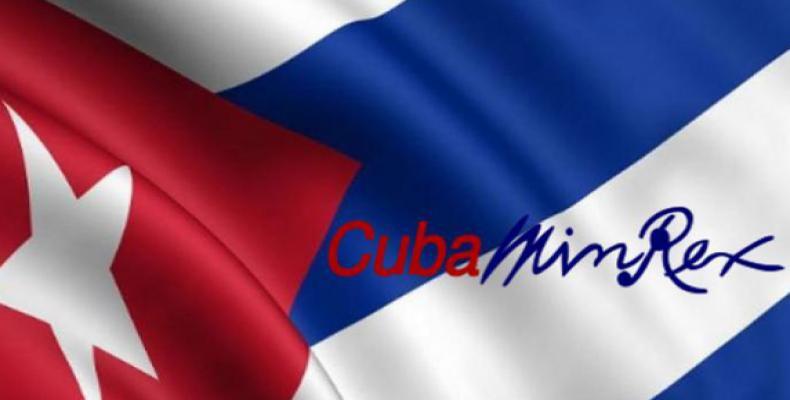International support for the lifting of the U.S. blockade against Cuba features among highlights of the island's foreign policy work last year.
The report, published by the Cuban Foreign Ministry, recalls that for the twenty-seventh time in a row, the United Nations General Assembly approved the resolution entitled "The need to end the economic, commercial and financial blockade imposed by the United States of America on Cuba," with 189 votes in favor, 2 against (United States and Israel) and 2 abstentions (Ukraine and Moldova).
Last year the island strengthened and expanded diplomatic relations and was visited by 33 Heads of State, nine vice-presidents or vice prime ministers and 14 foreign ministers.
With regard to its links with Latin America and the Caribbean, the visit by Cuban President Miguel Diaz-Canel to Venezuela stands out, as well as trips to Bolivia, Panama, El Salvador, Haiti, Suriname and Guyana. The island also received regional leaders such as the Prime Ministers of Saint Vincent and the Grenadines, Dominica and Belize, among others.
According to the report, highlights also included Cuba's hosting of the 16th edition of the Bolivarian Alliance for the People's of Our America-Peoples' Trade Agreement (ALBA), its participation in the 8th Summit of the Americas, held in Peru, and the 24th Meeting of the Sao Paulo Forum, which took place in Havana.
According to the document, 2018 saw Cuba consolidate its relations with Asia and Oceania, with Diaz-Canel making official visits to Russia, China, Vietnam, the Democratic People's Republic of Korea and the People's Democratic Republic of Laos. Meanwhile collaboration between Cuba and various African countries deepened and diversified.
Relations with countries in North Africa and the Middle East continued to be strengthened with visits by Cuban authorities to those regions and trips to the island by presidents of the Sahrawi Arab Democratic Republic and the Palestinian National Authority.
Last year also saw the positive development of relations between Cuba and the European Union, with significant progress made toward implementing the Political Dialogue and Cooperation agreement signed in 2016. Diaz-Canel also held meetings with authorities in France and the United Kingdom, during his visits to both countries.
Meanwhile, 2018 was marked by increasing U.S. aggression against Cuba, with actions geared toward reestablishing its hegemonic control over the region. The report notes that media and political manipulation of health symptoms reported by US diplomatic officials in Havana, had a significant impact on the deterioration of bilateral relations.
The text also highlighted the continued application and extraterritorial effects of the U.S. blockade, which represent the main obstacle to the island's economic development, as well as the State Department's decision to expand the List of Restricted Cuban Entities, with which US citizens are prohibited from associating.
Despite this, the first Cuban-American joint venture was created, between the Roswell Park Institute and the Molecular Immunology Center of Havana, for the production and commercialization of biotechnological products.
In terms of travel and trade, 2018 saw an increase in operations by airlines and cruise ships in the United States and in December an agreement between US Major League Baseball and the Cuban Baseball Federation was signed.
The report also notes that Cuba underwent the third UN Human Rights Universal Pe-riodic Review, with satisfactory results, positive mentions and recognition of its efforts toward the promotion of human rights on the island.


